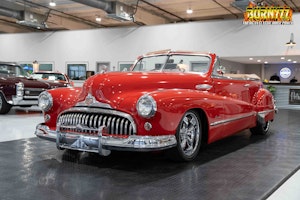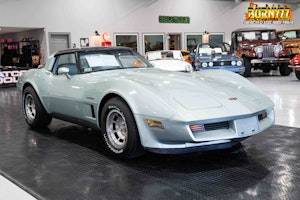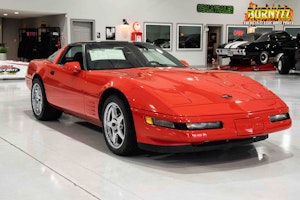Media | Articles
Avoidable Contact #56: In which the author is asked to stop straw purchases, with too much success

I’d like to start this column by apologizing to David Whitaker, who calls himself “The Iowa Land Guy” and who farms, with his family, outside of Ames, Iowa. Right now, Mr. Whitaker owns all four Google search results for the exact phrase “the money is made in the margins.” Starting tomorrow, he will have some company, thanks to your humble author.
Mr. Whitaker uses the phrase in an article about rising land prices, further cautioning that “farmers need to make sure that they are calculating the difference between what they put in and what they get out, especially when considering the purchase of new farmland.” I have a different application in mind. I’d like to talk to you about finance, specifically auto finance. You may have heard that there is no romance without finance; I can tell you that in my case there was no romance in auto finance, particularly when I worked for Ford Credit 28 years ago. My crush on my boss, Tina, was definitely not mutual. She had no sense of romance at all, as far as I could tell—although she knew how to get under people’s skin in other ways; after a particularly unpleasant disagreement with our very decent but occasionally brusque branch manager, she drove to the local Chrysler dealership and bought a new 1992 LeBaron, parking it defiantly next to the manager’s Mark VIII and occasionally allowing its Baroque-styled door to brush the Lincoln’s unprotected starboard flank.
When it comes to automotive finance, particularly “captive” auto finance (think Ford Credit, Ally, NMAC, and other lenders, which are “captive” to their affiliated automakers), the money is made in the margins. In the minor gap between prime rate and our floor-plan percentages, in the reduced rate of repossession obtained through careful vetting of credit, in the brinkmanship of lease residual percentages. It’s one of those businesses where having the right person in the right job is the difference between million-dollar profits and million-dollar losses.
I wanted to be one of those right people. I took the gig as a temp assignment between my junior and senior years of university, trying to keep my own books balanced while I ran a mail-order BMX bike shop at night. At the end of the summer they offered me a full-time job, which I accepted gratefully before my father intervened and told me to get my dumb you-know-what back to college so I could be successful. Decades later, I would meet Joy Falotico, the President of Ford’s Lincoln Division, and find out that her career path paralleled mine except for the part where her dad didn’t make her quit. (If you’re reading this column, Dad, I hope you feel bad about everything that happened in my life between then and now, including the part where I drive a Lincoln MKT but Ms. Falotico is driven in a Coach Door Continental.)
My first job at Ford Credit was verifying insurance on leases. Very humdrum stuff. But I had a talent for what we call “social engineering,” worming information out of reluctant dealers and insurance agents in just a few moment’s worth of conversation, so Tina eventually added some credit approvals, and straw-purchase prevention, to my list of responsibilities.
Marketplace
Buy and sell classics with confidence
What’s a “straw purchase,” and why did Ford Credit want to prevent it? It’s simple on the surface. A “straw purchase” in the auto business is when the person who applies for credit and puts their name on the purchase contract isn’t the person who will be driving the car. I’m not talking about “co-signing,” which is when we asked a more responsible or creditworthy person to also be on the loan; the classic case of that is my father co-signing on my 1997 lease of a Land Rover Discovery when I was making eight bucks an hour in a battery store. (On second, thought, Dad, maybe we are square.) Straw purchases are different. The typical straw purchase is someone’s creditworthy grandma signing for the Nissan Altima that her 560-FICO credit-criminal grandson is going to drive in a completely different state, but I’ve also seen small business owners signing for troubled employees, pastors signing for parishoners, and wealthy older men buying cars for young ladies who have no listed occupation.
What’s the big deal about straw purchases, you might ask. The straw buyers are creditworthy, right? Yes, they are—but there are additional risks involved, the most serious of which is that the straw purchasers don’t often realize that they are really on the hook for their grandson’s Altima or employee’s F-150 when that inevitable third missed payment happens. (We often saw a so-called “first payment default,” where the person drove the car off the lot and never sent in a single check.) Or they think the bank will just repossess the car and leave them alone, not realizing that they’re still liable for the difference between the outstanding loan amount and what the banged-up Altima on a compact spare will bring at a wintertime Midwest auto auction. Which leads to a lot of court time and a lot of hard feelings. And “captive” lenders have to be particularly careful about hard feelings. You repossess someone’s ’93 Tempo and all of a sudden their whole family starts buying Toyotas.
We’d also periodically see some sort of lurid affair where a straw-purchased car was used in a police chase or a million-dollar cocaine deal, leaving the vehicle in the permanent possession of the government and good old Ford Credit in a wing-ding of a court battle for the loan balance with Grandma, who was the most sympathetic witness a jury has ever seen. You get the idea. Straw purchases are bad.
On the other side, however, they are very good for dealers, who make the money up front and never see the consequences. Therefore, in any potential straw purchase I had to understand that the dealer was my adversary, not my ally. Many of them didn’t even think it was morally wrong—so they did it… All. The. Time. Of the 200–300 deals my branch saw every weekday that summer, I’d guess that somewhere between two and 10 were made of straw.
Eager to impress Tina, and fascinated by the intellectual challenge of the thing, I became a master of detecting the straw purchase. Every “deal” presented to our branch came with a certain amount of information: the car involved, the credit profile and employment of the buyer, and (usually) their trade info. It’s not that hard to see which ones stand out. A 780 beacon? Over 60? Living in a $750K house with no mortgage? Buying an Escort GT and rolling in $2000 of negative equity from a Cavalier Z24? Don’t look now, Dorothy, but there’s a scarecrow in the land of Oz.
Others were more subtle. Why is Bob Jones, local hardware store owner, buying a third truck that’s just like his other two? Mrs. Johnson wants a Mustang GT, she can afford it, and at the age of 44 she’s not too old to drive a Five Point Oh–but didn’t we turn down a certain young Mr. Johnson on a Mustang GT last week, at that same dealer? Is that her son, perhaps? It was pattern recognition on a grand scale. Hold all the deals in the back of your head and correlate them.
When I had an itch I couldn’t quite scratch, I social-engineered the dealers. “Hey, this is Cal from McDonald’s. My employee Billy Johnson is in there picking up his new Mustang, right?”
“Yeah, buddy, he’ll be heading back to work in a few.” DENIED. The dealers learned in a hurry not to let me speak directly to the buyers. Then they learned not to let their salesmen speak to me. By August I was being connected directly to the dealer principals, who would hector and threaten me via their “bag phones” from Bayliners on Buckeye Lake or Alum Creek.
“Boy, I told you that if you keep this up I’ll call your boss over there at Ford Credit.”
“Sir,” I responded calmly, “it is in the interest of Ford Credit to ensure that every purchase is legitimate.” One evening, right at closing time, Tina called me over to her desk.
“We need to talk,” she said, her face clouded. She’s getting a divorce, I thought excitedly, and she realizes that the young frog on the phones in front of her is really a prince.
“What’s up?”
“We need you to… calm down… on the straw purchases.” My heart stopped. Not because of the job, which didn’t pay much better than Burger King, but because I’d upset the older woman (32, as I recall) with whom I was certain I would eventually run away.
“But… but… I’m always right.”
“Yes,” Tina sighed, “you’re always right. And the dealers admit that you’re always right. But… Jack, we also want to do business with these people. And the other banks don’t look as closely at these deals. Which means we’re not only losing the sketchy paper, we’re losing the good paper which comes along with it.” She had a point; the megadealer who liked to feed us a barn’s worth of straw every week wasn’t sending a lot of applications to us anymore.
“So what do I do?”
“I still want you to prevent the straw purchases… but I really mostly want you to prevent the obvious ones.”
“For you,” I chirped, “I’ll do anything.” Tina frowned at me.
“You can’t give your heart and soul to this job,” she said, and for a moment her hand touched mine—or has my memory simply added that poignant but untrue detail, 28 years later? Then she picked up her purse, put on her coat, and walked out to her LeBaron.
The money is made in the margins. Between what’s obviously right and what’s obviously wrong. I know that now. But if you got away with letting your grandma or your uncle sign for your Escort GT in September 1992, don’t think I didn’t see you doing it. Don’t think you escaped my notice. I saw you there in those oh-so-profitable margins, hiding from my too-young-to-drink eagle eye. As David Whitaker might say, were he inclined to make a joke about his business, I was kind of like a farmer back then: I was outstanding in my field.









